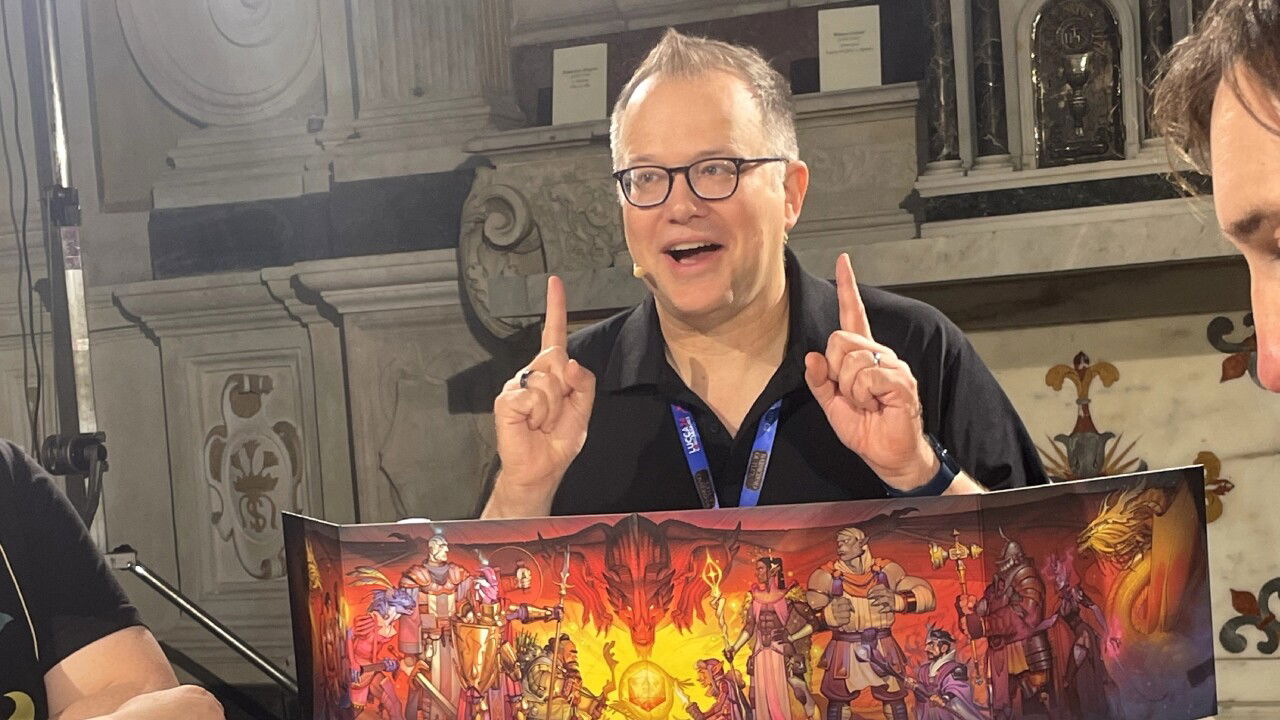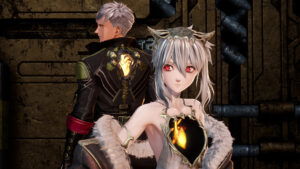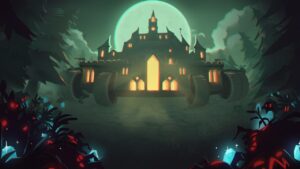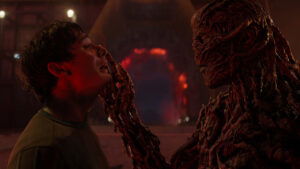At Lucca Comics & Games 2024, I was able to sit down to my first Dungeons & Dragons session with none other than Jeremy Crawford, Game Director of D&D at Wizards of the Coast. Not only that, but I was able to play in a centuries-old church completely decked out in fifty years of D&D art. I don’t know about you, but I think I am ruined for all future D&D sessions.
After a successful run of the 1980s campaign, in which I played Sheila, and ahead of the launch of the 2024 series of D&D handbooks, CGMagazine had the opportunity to sit down with Crawford and discuss all things Dungeons & Dragons. We learned about his role and his life as a long-time D&D player and Dungeon Master turned rules expert. He even shared some advice for fellow Dungeons & Dragons players and DMs.
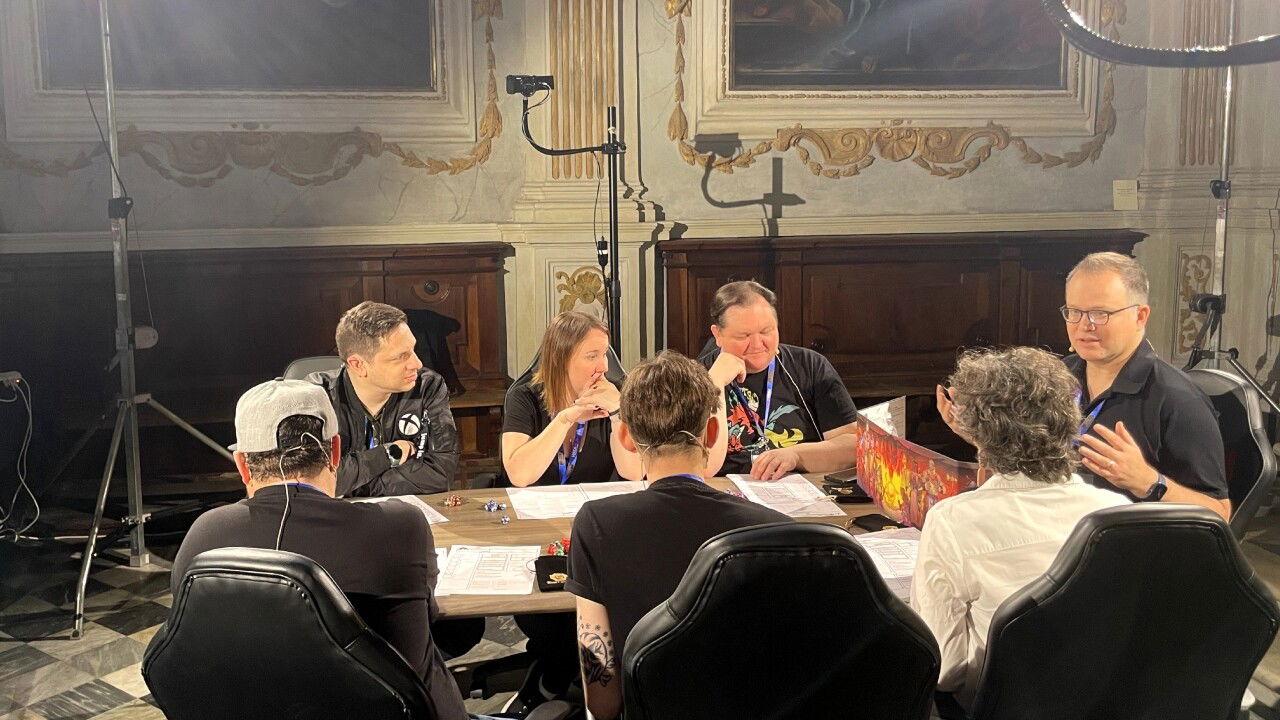
Tell us a bit about your role at Wizards of the Coast and what you do day-to-day.
Jeremy Crawford: So until recently, I was one of the two game architects of Dungeons & Dragons, which meant alongside Chris Perkins, creating the course and designing the structure of D&D. And an important part of that work is Chris and I were the two people behind the scenes leading the revision of the core books. And that’s why also the two of us are two of the lead designers of the new books.
So I led the design of the new Player’s Handbook. Chris, joined by James Wyatt, one of our principal designers, they together led the design of the Dungeon Master’s Guide, and then one of our designers, Wes Schneider, and I designed the new Monster Manual. Now in the midst of overseeing the creation of these revised rules, I then was promoted to become the game director.
And so in my new role as game director, I continue to design the course of the game itself, but also oversee the work of all of D&D‘s game designers and editors. So basically, if they are words in any of our books, they are coming from my team.
How did you get into D&D personally, though, before it became work?
Jeremy Crawford: I started in elementary school, so this would have been back in first edition D&D. D&D and I are very close to each other in age. I’m a bit older than D&D, and I started as a kid after my sister first tried it out. She told me, “This game is great. You have to try it. You get to make up anything you want,” and when I first played it, I didn’t even know the game had rules.
Me neither, apparently!
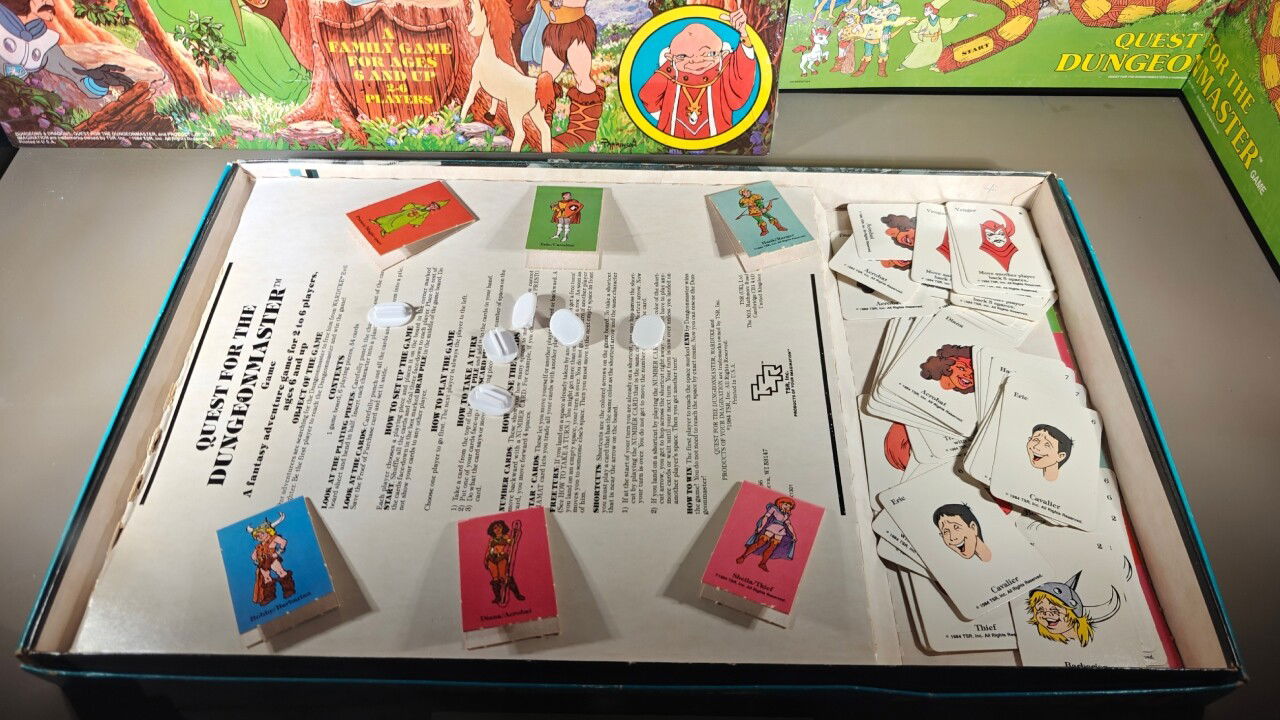
Jeremy Crawford: And that’s why to this day, as you saw when I teach the game, I usually don’t bother telling the new player all the rules because when I first played D&D, the dungeon master just told me, “Tell me whatever you want to do and I’ll tell you how to do it,” and that’s worked for me ever since. I think that really gets to the heart of D&D, and it’s why I have been so enchanted by it all my life. It is this framework for people to get together and imagine and thereby create worlds together and stories together.
Earlier in my career, I was going in another direction. I was preparing to be a professor of literature and theology, which is also about storytelling and finding meaning together in groups. But I kept feeling the call of making the stories myself, but then even more so making tools for other people to tell stories because so much of it as a D&D designer, so much of our work isn’t actually the storytelling itself, it’s about building the tools for other people to be storytellers.
“…the fate of the game is ever important to me, and even more importantly, the happiness of the people who play D&D, and also the happiness of future people who are playing D&D.”
So, how does it feel to turn your childhood hobby of Dungeons & Dragons into your lifelong career and now to be at the top of the ladder?
Jeremy Crawford: It is an amazing privilege. I honestly can’t believe it. Even though I’ve been at Wizards of the Coast for more than 17 years, I still can’t believe it. But I also view it as a responsibility. Because I care so much about D&D, the fate of the game is ever important to me, and even more importantly, the happiness of the people who play D&D, and also the happiness of future people who are playing D&D.
D&D, to me, has become really this amazing cultural legacy, and something I always try to encourage within our team is a sense of responsibility about protecting that legacy, nurturing it, and making it so that it will be healthy for decades to come.
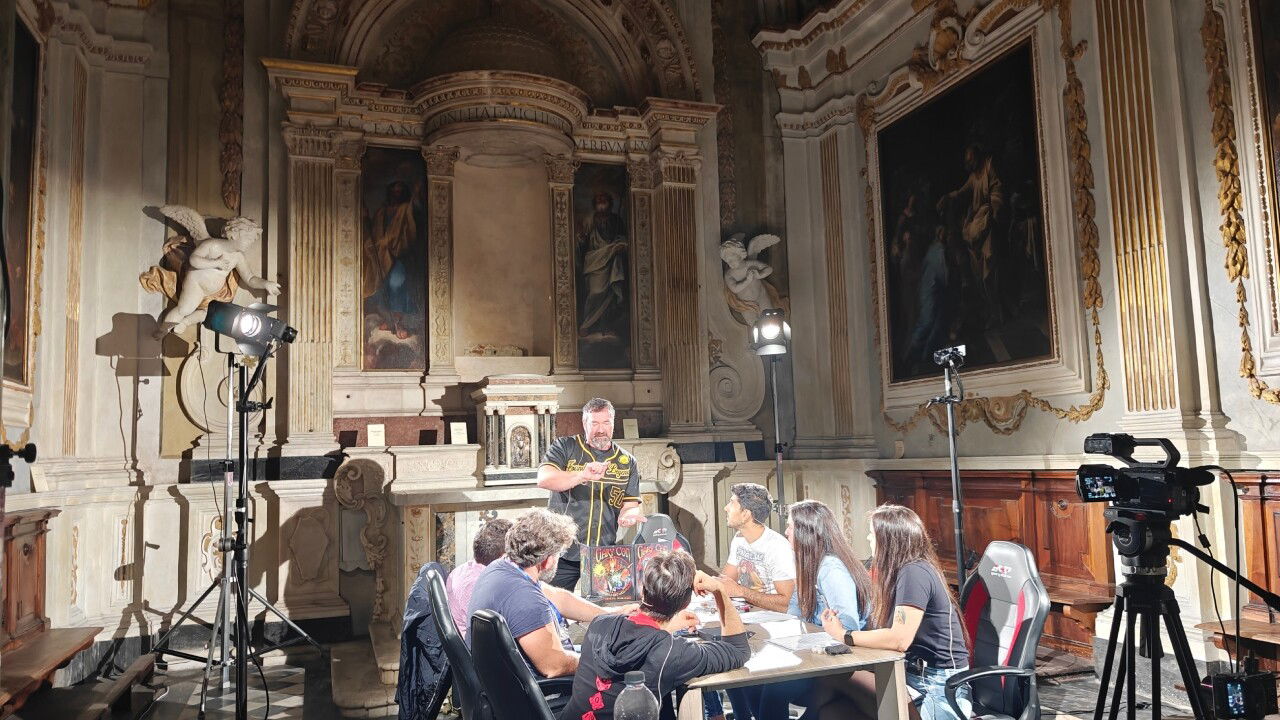
Personally, do you prefer being a player or a dungeon master?
Jeremy Crawford: I enjoy both. It often depends on what my mood is. And in fact, like here here at Lucca, I’ve DMed several games, including the game for you. But also, just last night, I was a player in a game in the same space in the beautiful church where we all played together. I love both. I do tend to be a dungeon master more than a player. And often, I view dungeon mastering as basically the special role of getting to play multiple characters.
I often think if you have a hard time choosing just one character to play, well, consider being a dungeon master because then you get to play a sort of endless parade of different characters who then meet the other player’s characters.
Do you have any advice for somebody who wants to be a dungeon master? Because that does not seem easy.
Jeremy Crawford: My recommendation is first to get started as a player just so you see how the game runs. You see the basics of the rules. I think it’s also helpful to look at YouTube videos of other people’s games. Only, though, if you look at multiple videos by multiple DMs, because there is some danger of watching only one DM and thinking that’s the only way to do it. Because part of the magic of DMing is that there are so many different ways to do it, right?
And then, finally, I’d recommend people check out the new Dungeon Master’s Guide because So much of that book has been written to be a helpful companion for the brand new Dungeon Master in teaching you here’s how you do it step by step. And I think The new Dungeon Master’s Guide will probably for years be viewed as the best guide of such guides that have ever been made for the game.
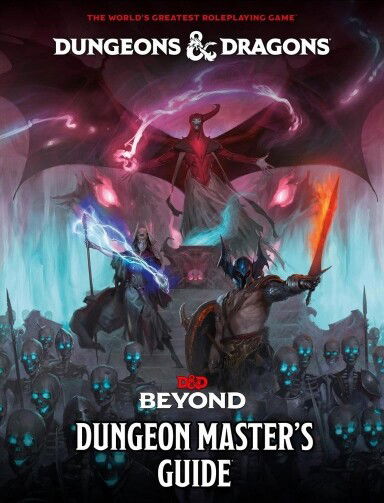
Is there a different approach when you’re ushering in new players as a dungeon master versus players who have been playing since the 80s?
Jeremy Crawford: A new player always needs a bit more guidance, no matter which edition of the game that you’re DMing. But for me, fundamentally, what an experienced player is doing and what a beginning player is doing, it’s the same. And because at the end of the day, it’s just about you imagining what you want your character to do, you describe it to the dungeon master, and then the DM describes if it succeeds or not.
I actually think sometimes experienced players will get so caught up in the excitement of how the game’s many intricacies work, and I’m the same way. Often, I’m thrilled. If I use this special ability, it does this, and if I cast that spell, it does that. That’s a big part of the fun of D&D, but I always enjoy occasionally taking a step back and reminding myself that all of us, no matter how long we’ve been playing, are in some ways still just kids sitting around together and playing make-believe together in this wonderful context provided by D&D.
I have been more of a video game player my whole life, but even sitting down with you playing Dungeons & Dragons, everything I saw on that sheet I’m doing in the new Dragon Age right now. So, as a Dungeons & Dragons player, did you ever make the swap over to video games? And how do you feel about the similarities between the two now?
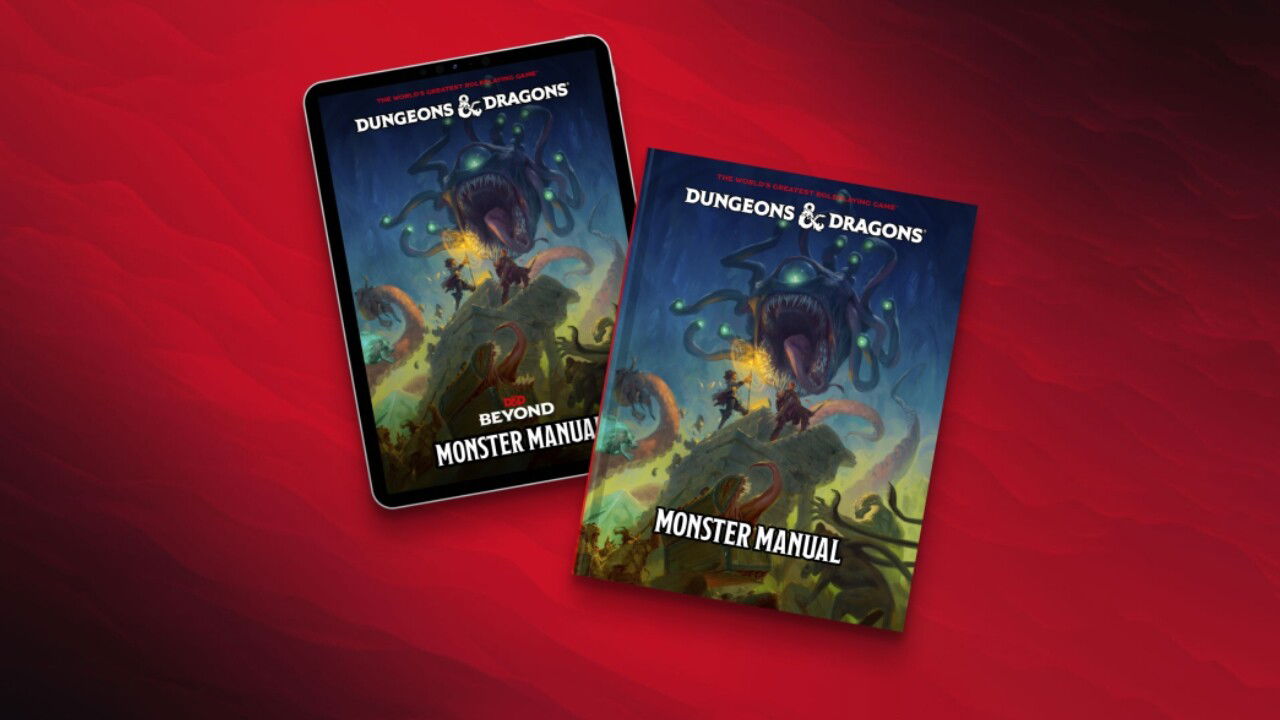
Jeremy Crawford: I am a gaming omnivore. I play D&D. I play other tabletop, role playing games. I play board games. I play video games. I play video game RPGs. I’m especially a big JRPG fan. So I can’t wait to get home and play Metaphor, the new Atlus game, and I take inspiration from all of those. It’s particularly fun because so many of those games are inspired by D&D, and then my team and I, we then play those games inspired by D&D, we are then inspired by those games.
So it’s this virtuous cycle where sort of D&D gives. Then we receive back interesting ideas, and then we send new ideas out, and I really love that dynamic. And really, there are many game designers, whether they are in tabletop RPGs, board games, or video games, for whom D&D was the first place where they were inspired to create a game or a story themselves. And I love seeing what other designers create in other media. To me, it shows just how inspiring D&D is in that it has spawned many of the games that we see here at Lucca.
That’s amazing, thank you very much. On the record, I was the best D&D player the other day, right? You didn’t just let me win?
Jeremy Crawford: You were fantastic.
Thank you. You didn’t let me win!
